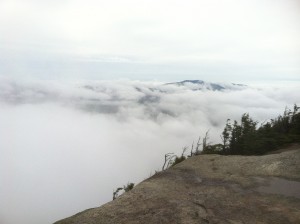Charles Olson’s Mayan Letters demonstrate the illuminating possibility of assuming the complexity of past systems rather than trusting that the cumulative effects of time necessarily mean progress. His perspective of advancing towards the peaks of civilizations achieved thousands of years ago, rather than retrieving select items from past civilizations. He shifts the focus and trajectory of paths to discovery of the ‘native’.
This sort of perspective shift has been troubling the waters of my consciousness. Even subtle changes seem to redirect my thoughts.
For instance, today on the subway I overheard people recounting the joy of the public parks’ centennial. Their conversation grated on me for a number of reasons that reflect as much on my judgment as much as on these people. I listened as they listed those parks they wished to visit, the National Geographic articles they’d read, their horror at the crowds in Yellowstone, which airport one would fly into. I couldn’t stomach it. I have always loved parks and climbing mountains — my mother’s family has a shared farmhouse in New Hampshire’s White Mountains, my grandfather worked as a ranger in Yosemite as a teenager, we have hiked in Acadia, Olympic and Cascade National Parks, not to mention the fact that my childhood home abuts state land with access to the Upton State Forest. Yet my whole view of these open spaces feels fractured. After reading William Cronon and The Very Short Introduction, I sense a project of recovery and preservation of these lands that is fundamentally self-serving on the part of the US government. The liberal policy of open space seems like a retroactive admission of wrongdoing, of belated resource appreciation that claims “we were right all along, these lands should be open,” as if the previous relationship to the landscape had neglected this fact. As if the preservation of land and mutual relationship with the terrain belonged to the “National” identity.
These thoughts are still jumbled as I attempt to abstract out a new trajectory for my own understanding. I cannot help but feel a loss of ignorance, a loss of the belief in the rhetoric of founding fathers and noble public works. In Jean Genet’s piece on Rembrandt, he reflects on not being able to unknow that he is everyone else. I can’t reverse the new weight with which past policies burden my understanding of the structures that gird our daily functions. I guess I have to find a new optimism in this loss of ignorance.


